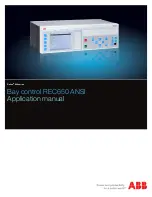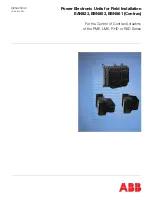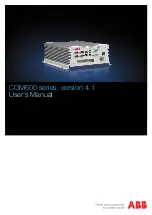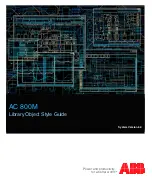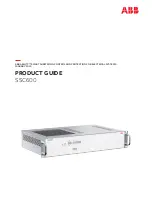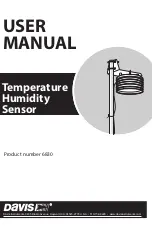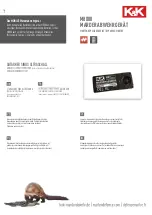
GENERAL DESCRIPTION
channel of processing/amplifying (see further for a block diagram of what is inside the
DSP).
All signals, audio or sense, use 24 bits converters. The CPU can also set up the analog
input and output gain for each channel, thus ensuring that the dynamic range of the
system is always optimized (regarding volume, gain, patch and bridge settings).
Monitoring of the amplifier modules and power supplies (including multiple measurement
such as temperature, voltages, current, integrate current …) are done both by the CPU and
the DSPs.
Power amplifier blocks
The power amplifier part is a custom design to fit the very unique concept of digital
protection of an analog amplifier. On the pure amplification side, it utilizes custom
transistor (thin chip and small thermal resistance), and the well known Yamaha EEEngine
technology, that offers the sonic quality of the conventional class AB amplifier with the
efficiency of the class D. You can learn more about the EEEngine technology at the
following address:
http://www.yamahaproaudio.com/topics/leading_technology/learn_more_about_eeengine/index.html
Power outputs block
The power outputs block is used for current and voltage sensing at the output of the amplifier. These
datas will be used by the DSP for protecting both the amplifier and the NEXO loudspeaker connected.
This stage features also a programmable routing unit that allows using the amplifier in bridge mode
on the same speakon pins than in non bridge mode.
When using the NXAMP Powered TDcontroller in four channels mode, here is the output routing:
1+
1-
2+
2-
Speakon A
Speakon B
1+
1-
2+
2-
CH1
CH2
1+
1-
2+
2-
Speakon C
Speakon D
1+
1-
2+
2-
CH3
CH4
Note the symmetrical structure between channels 1/2 and channels 3/4.
When using the NXAMP Powered TDcontroller in bridge mode, here is the output routing:
1+
1-
2+
2-
Speakon A
Speakon B
1+
1-
2+
2-
CH1+
CH1-
1+
1-
2+
2-
Speakon C
Speakon D
1+
1-
2+
2-
CH3+
CH3-
Now amplifier channel 1 and 2 works together in bridge mode (channel 2 is marked “CH1-”
above). This is same for channel 3 and 4. The pin-out on the speakon is the same as the
channel 1 and 3 in non bridge mode, thanks to the programmable routing unit (not drawn
here).
PAGE 29 OF 91































